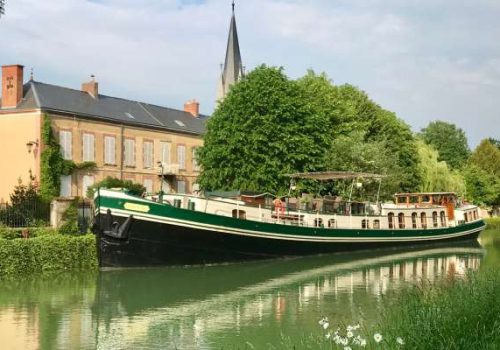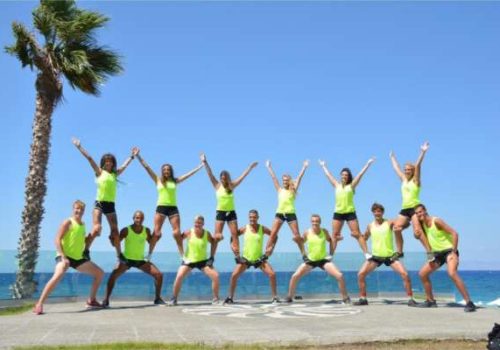Living and Working in Norway
Information & guidance about seasonal jobs in Norway
Norway, renowned for its breathtaking nature, welcoming populace, and progressive social system, continually entices individuals from across the globe to settle and pursue employment there.
With a high standard of living and the distinction of being one of the world’s happiest countries, Norway holds significant appeal. However, for foreigners seeking work opportunities, understanding the job market and navigating potential challenges are essential considerations. Below, we offer valuable insights into living and working in Norway, along with useful tips and information for those contemplating a move to this enchanting nation.
Seasonal jobs in Norway
We don’t have any jobs matching this search. Below you’ll find a selection of our most popular vacancies!
- Housekeeping, Tourism, Waitress-Waiter
- France
- Tourism
- Cyprus, Greece, Spain
- Hotel jobs, Tourism
- Cyprus, Greece, Spain
- Chef & Cookery, Hotel jobs, Tourism, Waitress-Waiter
- Spain
- Hotel jobs, Tourism
- Cyprus, Greece, Spain
- Hotel jobs, Tourism
- Greece
Winter resorts in Gausdal, Voss, and Lillehammer offer a range of job opportunities in hotels, bars, and restaurants, encompassing various roles.
Similarly, during the summer months, beach resorts also present similar job openings. However, these positions are popular among travelers and students, so early application is crucial. In the harvest season, from July to September, opportunities abound in fruit picking – strawberries in Lier, raspberries in Andebu, and potatoes in Loen. Additionally, fish processing factories in locations such as Bergen, Vardes, and Bodes may offer temporary work.
For those interested in being Au Pairs, some childcare experience is generally required, although fluency in Norwegian may not be necessary. Au Pairs reside with host families, taking care of children and performing basic domestic duties like cleaning. While wages are often modest, food and accommodation are usually provided.
If you’re seeking voluntary opportunities in Norway, you’ll find options in community development and education sectors.
Regardless of your purpose for visiting Norway – whether for a holiday, business trip, study, work, volunteer work, or to emigrate – it’s essential to obtain accurate and up-to-date information from the official website of the Norwegian Directorate of Immigration.
For the latest visa requirements, it’s advisable to check with the Embassy or Consulate of Norway before making your travel arrangements. Being well-informed will ensure a smoother and more enjoyable experience during your time in Norway.
Working in Norway
Working Conditions in Norway – A Model of Excellence
Norway boasts exemplary working conditions, thanks to a comprehensive set of laws and regulations that safeguard the well-being of employees.
Key areas covered by significant laws pertain to working hours, wages, and holidays. The standard weekly working time is typically limited to 37.5 hours, with overtime generally compensated. Furthermore, the minimum wage is notably high, averaging around 20 euros per hour. Employees in Norway also enjoy ample paid vacation days, usually totaling at least 25 days annually.
Stringent safety regulations prioritize the health and well-being of workers. Employers bear the responsibility to ensure safe and healthy working conditions, providing protective clothing and promoting secure work practices.
Norway’s strong representation of workers’ interests is supported by numerous trade unions. Employees have the right to join unions that advocate on their behalf. These unions facilitate collective bargaining, wage negotiations, and mediate conflicts between workers and employers.
Salaries in Norway – Generously Remunerative
Salaries in Norway are renowned for their generosity, with the average income hovering around 61,000 euros per year. Naturally, salary levels vary based on several factors, including industry, experience, qualifications, and location.
Professionals in technology, IT, engineering, and healthcare typically enjoy particularly lucrative salaries. Well-paid opportunities are also prevalent in the oil and gas sector.
However, it’s crucial to consider living costs, especially in urban areas. Rent, groceries, and other expenses can accumulate quickly. Therefore, it’s essential to ensure your salary aligns with the cost of living, granting you financial peace while working abroad.
While Norway’s tax rates are high and impact net salaries, the nation compensates through various state benefits, such as a comprehensive healthcare system and a generous welfare network.
Working in Norway offers an unparalleled experience, with excellent working conditions and attractive remuneration, making it a sought-after destination for professionals seeking a fulfilling career and a high quality of life.
Working in Norway: Understanding Taxes
Income tax in Norway operates on a progressive system, meaning that as your income rises, so does your tax rate. The tax rate varies depending on your income level, typically ranging from 22% to 45%. For the highest income bracket, the tax rate is currently 22% for income up to 180,800 Norwegian kroner (approximately 18,000 euros) and 45% for any amount exceeding that threshold.
Additionally, there is an income allowance that changes from year to year. In 2021, the total income allowance was 106,800 Norwegian kroner (approximately 10,500 euros). If your earnings fall below this amount, you are exempt from paying income tax.
Norway also offers various tax deductions to help reduce your tax burden. You can claim deductions for certain work-related expenses, such as work clothes or necessary equipment.
Furthermore, it’s essential to be aware of Norway’s capital gains tax, which applies to income earned from investments like shares, funds, and interest. The current tax rate for capital gains is 31.68%.
Overall, income tax plays a significant role in funding public services and infrastructure in Norway. If you are working or planning to work in the country, it is crucial to familiarize yourself with the income tax system. If needed, seek advice from a tax advisor to ensure you make the most of available deductions and benefits, allowing you to navigate the tax landscape with confidence.
Jobs in demand in Norway
Norway’s robust economy and exceptional quality of life make it an appealing destination for various professions in high demand. Here are some prime examples:
IT Specialists: Given Norway’s heavy reliance on technology, the demand for IT specialists is substantial. If you possess an apprenticeship or degree in this field, your prospects here could be quite promising.
Engineers: The country’s thriving oil and gas industry consistently seeks engineering expertise. Additionally, there are ample job opportunities in other engineering domains like mechanical and electrical engineering.
Healthcare and Nursing Staff: Norway has a significant need for qualified medical and nursing professionals. Numerous job openings await doctors, nurses, and caregivers.
Teachers: Norway boasts a top-tier education system and continuously seeks qualified educators. If you have completed teacher training, you’ll find favorable opportunities in this field.
Scientists: Renowned for its research and scientific institutions, Norway offers an ideal setting for professionals working in scientific fields. If you’re seeking new challenges and advancements in your scientific career, Norway beckons as a promising destination.
Whether you’re an IT specialist, engineer, healthcare professional, teacher, or scientist, Norway holds tremendous potential for your professional growth and personal fulfillment. Consider exploring the opportunities that this vibrant country has to offer.
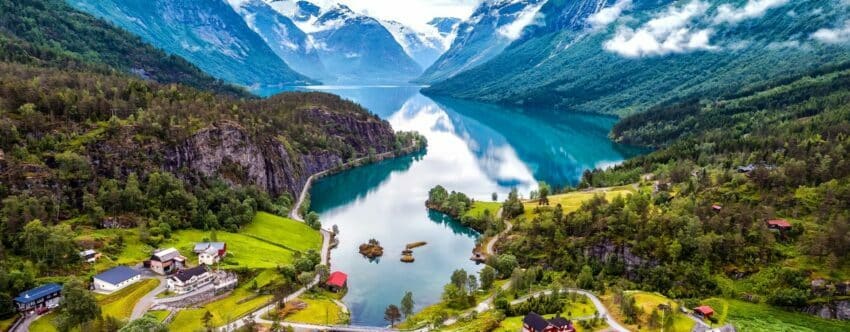
Job Hunting in Norway – Essential Tips for Success
If you’re embarking on a job search in Norway, follow these key pointers to maximize your chances of success:
Language Matters: Ensure your CV and cover letter are written in Norwegian, as it is the predominant business language in the country. If you’re not fluent in Norwegian, consider using a professional translation service to accurately translate your application documents. However, if you’re applying for an English-speaking position where no knowledge of Norwegian is required, submitting your application in English is acceptable.
Prepare Your Application: With your application documents in order, it’s time to start looking for job opportunities. Explore various avenues, including job boards like Jobbnorge or Nav.no, where you’ll find a wide range of job offers across different industries.
Direct Applications: Many companies in Norway post their job vacancies directly on their websites. Check the career pages of companies you’re interested in and apply directly through their portals. Additionally, consider reaching out to recruiters or registering with the NAV employment agency to stay informed about current job openings.
Language Requirements: Be aware that Norway has stringent language requirements. If you don’t speak Norwegian, it might be challenging to secure employment. Investing in learning Norwegian or at least acquiring basic language skills can significantly enhance your job market prospects.
By adhering to these guidelines, you’ll be better equipped to navigate the job market in Norway successfully. Best of luck in your job search!
Applying for a Job in Norway? Here are Essential Tips for Your Application
If you’ve come across an intriguing job opportunity in Norway and wish to apply, consider these valuable tips to enhance your application.
Your Curriculum Vitae (CV) takes center stage in your application. Ensure it is both concise and comprehensive, featuring relevant experiences, qualifications, and skills. Keep it to a single page and present it in reverse chronological order. While a cover letter is optional in Norway, including one is always appreciated. Limit it to one page and let it complement your resume, tailored specifically to the position you seek, while expressing your motivation for applying.
Although Norwegian is the predominant language in Norway, many Norwegians are proficient in English. However, learning Norwegian is advantageous, especially if you plan to work in the country. Consequently, ensure that your application is written in the appropriate language.
Norwegians are renowned for their emphasis on work-life balance and appreciation of leisure time and family. In your application, emphasize your ability to work collaboratively within a team and maintain a healthy equilibrium between work and personal life.
While references may not be a standard requirement in Norway, including them in your CV, if available, can bolster your application. When attending an interview, dressing formally and offering a handshake is customary. Additionally, keep in mind that the application process in Norway may take longer than in other countries, so it’s essential to remain patient while waiting for a response.
By adhering to these tips, you’ll position yourself favorably during the application process for your desired job in Norway. Best of luck in your endeavors!
Expanding Your Social Circle in Norway – Networking Tips
If you’ve recently moved to Norway and are eager to make new friends, there are numerous avenues to build your social network. The country boasts an open and friendly culture, making it easy to meet like-minded individuals. Here are some helpful tips to aid you in finding new friends or even landing a job:
Leverage Social Media: Tap into the power of social media to connect with people. Join Facebook groups like “New in Oslo” or “Internationals in Trondheim” to meet fellow expats and locals who share similar interests. Instagram can also be a valuable tool to discover local groups and events.
Language Exchange Programs: Engaging in language exchange initiatives is another excellent way to meet new people. These programs offer a chance to enhance your language skills while connecting with others who are keen on cultural exchange. Many universities provide free language courses and programs, creating opportunities to mingle with international students and locals alike. Speaking the language fluently can also boost your prospects for job opportunities.
Volunteering: Volunteering can be a rewarding path to forge new friendships with like-minded individuals. Numerous local organizations seek volunteers to contribute to various projects and events. By signing up for community service, you not only support local communities but also establish meaningful connections. This can also serve as a stepping stone towards securing a permanent position within such organizations.
Participate in Sporting Activities: Norwegians are known for their enthusiasm for sports, making it an ideal way to make friends. Join a sports club or a group that regularly goes jogging or hiking together. You can also attend sporting events to meet individuals with similar interests.
Attend Events: Norway is brimming with festivals, concerts, and other gatherings, providing ample opportunities to meet new people. Attend local music festivals or cultural events and strike up conversations. Norwegians are generally welcoming and approachable, so don’t hesitate to introduce yourself.
In Norway, building a vibrant social network is within your reach. Embrace these networking tips, and you’ll soon find yourself embraced by a circle of friends in this warm and inviting country.
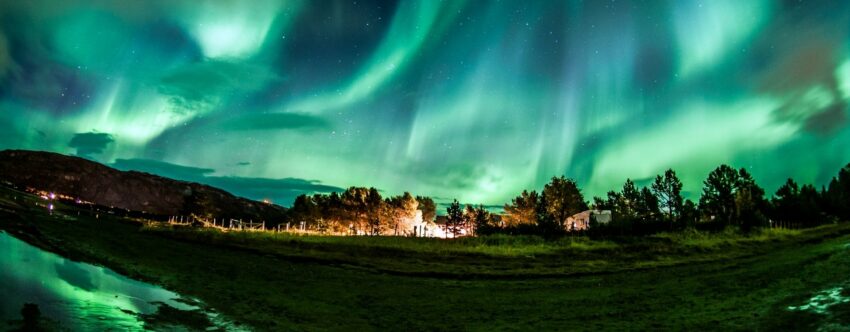
Living in Norway
Benefits of living and working in Norway
One of the main advantages of living in Norway is its natural beauty. The country is famous for its fjords, glaciers, mountains, and lakes, which attract visitors from all over the world. It offers numerous opportunities for outdoor activities such as skiing, hiking, climbing, fishing, and much more. With such natural beauty and a healthy lifestyle, it’s no surprise that Norway is often cited as the happiest country in the world.
Accommodation in Norway
If you’re contemplating a move to Norway, renting an Airbnb can be a smart starting point to explore the area and determine where you’d like to settle. Undeniably, the cost of living in Scandinavian countries is relatively high, but this is offset by the exceptional quality of life they offer.
For those seeking to avoid hefty rent prices, it might be best to steer clear of the capital, Oslo. On average, monthly rents for a 1-bedroom apartment in Norway, outside of major cities, hover around €800. However, if you have your eyes set on a 3-room apartment, expect to budget around €13,000. Many Norwegians also opt for holiday homes nestled in the woods, cherishing proximity to nature as a way of life. Furthermore, some professionals residing in Sweden’s western regions find it more feasible to work in Norway, given the comparatively lower cost of living in Sweden.
With a stroke of luck, you may discover your ideal, hygge-inspired home through the following pages:
finn.no
gulesider.no
hybel.no
oslo.craigslist.org
Transportation in Norway
Transportation in Norway offers a diverse range of options for travelers to explore this beautiful country.
One of the most commonly used means of travel is the bus. Buses are readily available in almost every town and village, making them a convenient choice for covering long distances within Norway. Various bus companies offer different routes and schedules, ensuring flexibility for travelers. Moreover, Norwegian buses are known for their comfort and often provide complimentary WiFi onboard.
Another popular mode of transportation is the train. The Norwegian railway system is modern, providing a fast and comfortable way to traverse the country. With most trains offering free WiFi, passengers can stay connected or unwind during their journeys. Regular train services connect major cities and also extend to smaller towns, ensuring comprehensive coverage.
Given Norway’s numerous fjords and islands, ferries are frequently used for transportation. These scenic boat rides offer a unique opportunity to witness the country’s breathtaking landscapes from the water, and they are often necessary to reach certain destinations.
For tourists seeking independent exploration, renting a car is an excellent option. Norway’s well-maintained roads offer a delightful way to enjoy the scenery at your own pace. However, it’s important to note that some roads in Norway can be narrow and winding, particularly in mountainous regions, and during winter, snow chains may be necessary.
Cycling enthusiasts will find Norway to be a cyclist-friendly country. The well-developed network of cycle paths, often off-road, provides an excellent opportunity to immerse oneself in nature while exploring the surroundings. Additionally, bike rentals are readily available for those who prefer not to bring their own.
Overall, Norway offers a plethora of transportation options tailored to the needs and preferences of every traveler. Regardless of the mode chosen, one thing is certain – the journey will be accompanied by the stunning scenery that Norway is renowned for.
Food in Norway
Norway is known for its unique cuisine, which is strongly influenced by nature and the seasons. Norwegian cuisine offers a variety of foods that cater to both foodies and adventurers alike. Here are some of the most famous dishes and ingredients found there:
Fish: Norway is known for its fresh and delicious fish dishes. There is a wide range of fish such as salmon, cod, haddock, and trout. These are often smoked, grilled, or fried and served with various side dishes.
Skrei: A particular delicacy is the skrei, a migratory cod that returns to Norway every winter. Skrei has firm flesh and is a popular dish in Norwegian cuisine.
Moose: The country is also known for its game meat, especially moose meat. It is rich in flavor and is often prepared as a goulash, burger, or steak.
Potatoes: Potatoes are an important part of Norwegian cuisine and are often served as a side dish. In some regions, they are also prepared as a main course, such as in the well-known dish “Klippfisk og poteter” (klipfish and potatoes).
Lefse: Lefse is a thin, soft flatbread made with potatoes, flour, butter, and milk. It is often eaten with butter, cinnamon, and sugar or jam.
Brunost: Brunost, also known as “brown cheese”, is a special type of cheese made in Norway. It has a unique sweet taste and is often served as a spread or as an accompaniment to meat and vegetables.
Fårikål: Fårikål is a traditional dish of lamb and cabbage that is often served in autumn. It is boiled in a large pot and served with potatoes.
Overall, Norwegian cuisine offers a mix of natural ingredients and traditional dishes that can visit Norway a culinary experience.
Nightlife in Norway – A Distinctive Experience
The nightlife scene in Norway stands in stark contrast to that of southern European countries. Parties here tend to kick off early and wrap up relatively soon. Bars and clubs usually close their doors between midnight and 3 am.
As the capital of Norway, Oslo boasts a vibrant bar and club culture. The Grünerløkka and Grønland districts host some of the city’s trendiest venues, often featuring live music and DJs spinning electronic beats.
Bergen, the country’s second-largest city, also offers a lively nightlife experience. The area around Bryggen is a favorite among locals and visitors alike, with its abundance of bars and restaurants, providing an opportunity to unwind at sidewalk cafes while soaking in the atmosphere. Additionally, Bergen is renowned for its top-notch live music events.
Even in Tromsø, a city situated in the far north of Norway, you can find great bars and clubs. Here, you can party well into the early hours while occasionally catching a breathtaking display of the Northern Lights dancing in the night sky.
Nonetheless, it’s essential to be mindful that nightlife in Norway comes with a relatively higher price tag compared to other countries. Alcohol prices are steep, and it’s common to encounter cover charges at bars and clubs.
Despite this, Norway’s nightlife offers a distinctive and worthwhile experience to explore. Whether you’re into live music, electronic beats, or simply crave a laid-back atmosphere, you’ll find something to suit your taste.
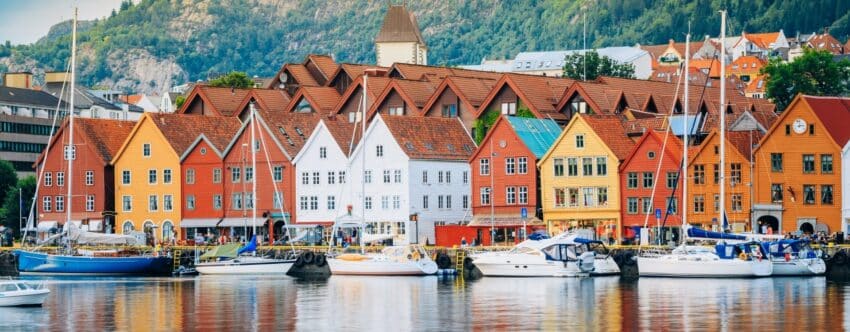
Norway’s Breathtaking Landscape and Nature
Norway is renowned for its awe-inspiring scenery and unspoiled natural beauty. From majestic mountains and deep fjords to expansive forests and glaciers, this country offers an array of stunning landscapes.
One of the most striking features is the fjords, those deep, narrow waterways sculpted by glaciers that stretch along the coastline. Among them, the Sognefjord stands out as the longest, spanning an impressive 205 kilometers, bordered by lofty mountains and lush green hills. Another remarkable fjord is the Geirangerfjord, a UNESCO World Heritage Site famous for its waterfalls and sheer cliffs.
The mountain landscape in Norway is equally impressive, with the prominent fells running through its central region. Galdhøpiggen, the highest peak at 2,469 meters, adds to the breathtaking allure. These mountains often host glaciers, providing a stunning backdrop for outdoor activities like hiking, skiing, and climbing.
Norway’s forests are also worth noting, covering about one-third of the country’s landmass. They serve as a habitat for various animal species, including moose, deer, and bears. Dominated by fir, pine, and birch trees, the Norwegian forests offer a spectacular display of colors during autumn.
The country’s nature is further enriched by its numerous waterfalls and rivers. One notable cascade is Vøringsfossen, tumbling down from a height of 182 meters. Additionally, the Sjoa River attracts adventurous white-water rafters from around the globe each year.
The Climate in Norway
Situated in northern Europe, Norway experiences a diverse climate influenced by its geographic location. Most regions fall within the temperate climate zone, though the northern areas have a subarctic climate.
Coastal regions enjoy relatively milder temperatures due to the warming effect of the Gulf Stream, while inland areas tend to be cooler. Summer temperatures typically range between 15 and 20 degrees Celsius, but some regions may reach up to 30 degrees Celsius. Winters can be quite cold, with sharp drops in temperature due to cold air from polar regions and frequent snowfall. In the mountains and northern areas, winter temperatures can plummet below -40 degrees Celsius.
Precipitation patterns also play a significant role in the country’s climate. Coastal regions tend to be more humid, while inland areas experience drier conditions. Rainfall occurs throughout the year, but it is more common during autumn and winter when it may turn to snow, creating ideal skiing conditions.
Furthermore, Norway is renowned for the mesmerizing Northern Lights, visible during the winter months. Clear winter evenings offer the best opportunity to witness this captivating natural phenomenon.
In conclusion, Norway’s climate boasts diversity, catering to various preferences. Whether you seek the mild allure of the coast or the rugged beauty of the mountains, Norway has something to offer for nature enthusiasts and outdoor adventurers alike.
Discovering the Best of Norway – Nature and Culture Unite
Norway, a land of unrivaled beauty, boasts breathtaking nature and captivating cities that offer a wealth of highlights for those considering migration. Here are some of the country’s most enchanting attractions:
Fjords: The world-famous Norwegian fjords mesmerize with their majestic scenery, cutting deep into the mountains. The Geirangerfjord and the Sognefjord stand out as some of the most renowned examples.
Northern Lights: Norway’s skies come alive with the mesmerizing Northern Lights, a magical display of dancing lights that captivates all who witness it.
Oslo: Norway’s capital, a jewel among European cities, entices with its architectural wonders such as the Opera House, cultural gems like the Munch Museum, and historical landmarks like Akershus Fortress.
Bergen: This charming port city stands out for its vibrant wooden houses and bustling fish markets. As a starting point for the iconic Fjord Path tours, Bergen beckons adventure seekers and culture enthusiasts alike.
Trolltunga: A famous rock formation that rewards hikers with breathtaking views of Ringedalsvatnet lake and the surrounding mountains, despite the challenging trek.
Lofoten: The captivating Lofoten archipelago in the north offers picturesque fishing villages and opportunities to observe majestic whales and orcas.
Preikestolen: This renowned rock formation, towering 604 meters above the Lysefjord, offers spectacular vistas, making it one of Norway’s most cherished viewpoints.
Healthcare Excellence in Norway – Ensuring Universal Access
Norway proudly offers its citizens one of the world’s finest healthcare systems, marked by universal coverage and high-quality services. Publicly funded, the healthcare system guarantees access to all residents, regardless of their social or economic status.
Based on a decentralized framework, healthcare services are organized and provided by regions and municipalities. Public hospitals and health centers are at the heart of this system, with the government investing significantly to stay at the forefront of medical technologies and treatments.
Collaboration and coordination between different sectors are central to Norway’s healthcare approach, ensuring patients receive optimal care. The country’s abundance of well-trained and qualified healthcare professionals further enhances the quality of medical services.
Norwegian citizens enjoy access to healthcare free of charge or at a minimal cost, with the government providing partial coverage for prescription drugs and medical services. Such a comprehensive and compassionate healthcare system remains a source of pride for Norway and its people.
Visa and Travel Insurance – Preparing for a Safe and Secure Journey
For short stays in Norway, travelers from most countries do not require a visa. However, if you plan to stay in Norway for more than 90 days, you may need to apply for a visa. Visa requirements differ by country, so it’s essential to check the specific requirements in advance.
Prior to traveling to Norway, obtaining comprehensive travel insurance is highly advisable. Such insurance can provide coverage for unforeseen events, including medical emergencies, flight cancellations, and lost luggage. For travelers interested in engaging in adventure sports during their stay, it’s important to ensure that their travel insurance also covers such activities.
Specialized insurances are available for travelers participating in specific activities like skiing or hiking in Norway. These insurances can offer coverage for mountain rescue, ambulance services, and medical treatment related to these activities.
Security – Embracing Norway’s Peaceful Environment
Norway, a tranquil and safe country, boasts a low crime rate due to a combination of factors. Its high quality of life and standard of living, as one of the wealthiest nations globally, contributes to reduced economic hardship often linked to crime. Moreover, a strong culture of respect for the law and community further supports the country’s safe environment.
Norway’s police force is known for its effectiveness and professionalism, responding swiftly to criminal incidents. An interesting aspect is that Norwegian police officers are predominantly unarmed, which fosters a positive relationship between law enforcement and citizens, fostering trust.
The country’s criminal justice system prioritizes rehabilitation and resocialization, offering criminals a second chance to reintegrate into society. This approach has successfully reduced recidivism and maintained the overall low crime rate.
Norway implements numerous crime prevention measures, including surveillance cameras in cities to deter crime and identify offenders. Additionally, the country’s strong sense of community collaboration plays a significant role in ensuring safety.
Embrace the tranquil and secure atmosphere in Norway, and enjoy a peaceful journey, knowing that measures are in place to safeguard both residents and visitors alike.

